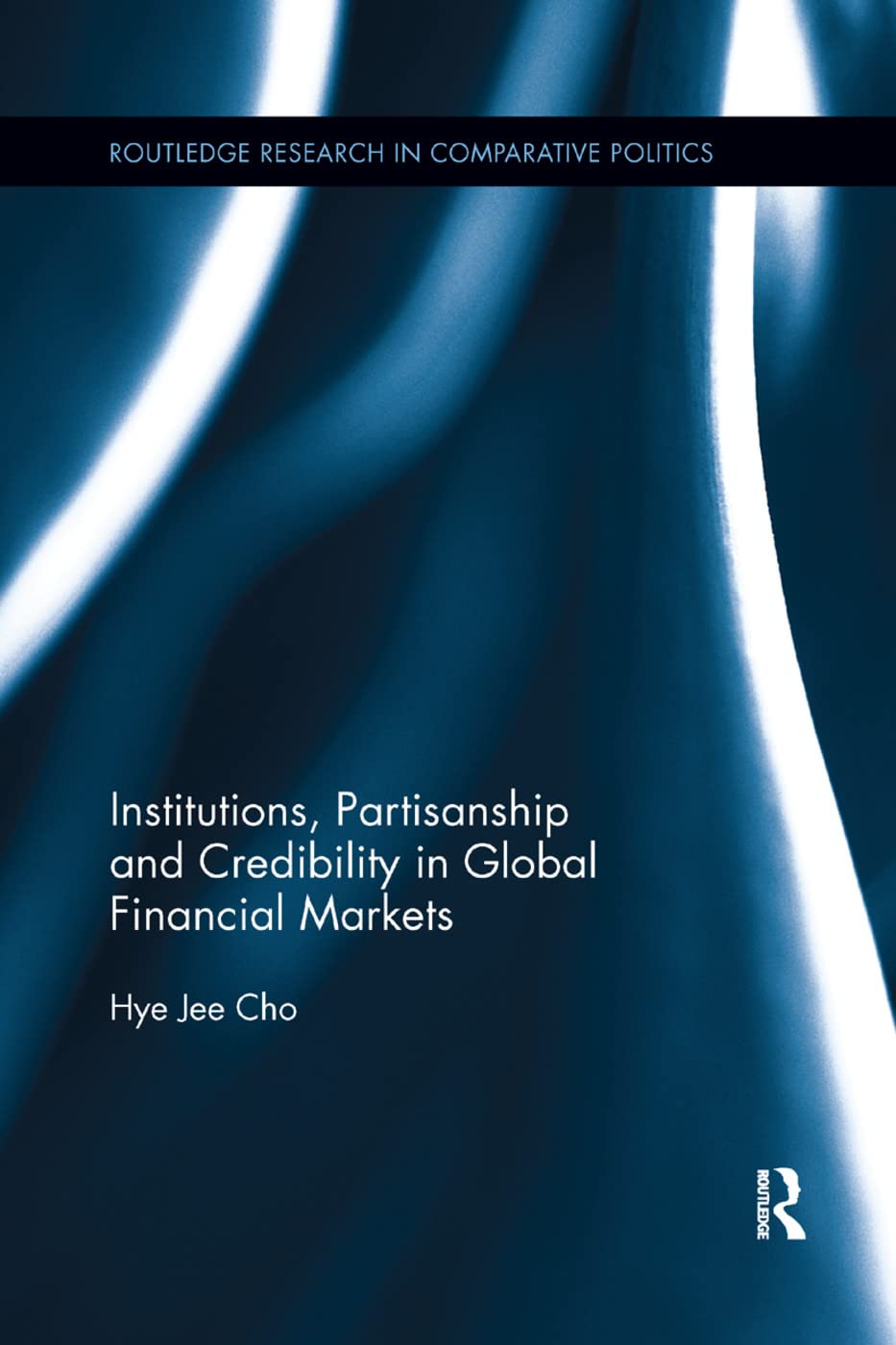Institutions, Partisanship and Credibility in Global Financial Markets
Institutions, Partisanship and Credibility in Global Financial Markets is backordered and will ship as soon as it is back in stock.
Couldn't load pickup availability
Genuine Products Guarantee
Genuine Products Guarantee
We guarantee 100% genuine products, and if proven otherwise, we will compensate you with 10 times the product's cost.
Delivery and Shipping
Delivery and Shipping
Products are generally ready for dispatch within 1 day and typically reach you in 3 to 5 days.
Book Details:
-
Publisher: Routledge
-
Author: Hye Jee Cho
-
Language: English
-
Edition: 1st Edition
-
ISBN: 9780367272821
-
Pages: 184
-
Cover: Paperback
-
Dimensions: 9.1 x 6.1 x 0.7 inches
About the Book:
In Sovereign Credibility in Global Financial Markets, Hye Jee Cho delves into the dynamics of sovereign credibility and its significant impact on financial stability in the context of developing countries. In recent decades, global financial markets have faced a series of disruptive crises, from the Tequila Crisis to the Eurozone turmoil, highlighting how economic and political instability in one region can quickly lead to widespread market fluctuations. Such instability is particularly detrimental for developing nations that depend heavily on international financial markets for their financial needs.
This book presents a critical argument against earlier studies that suggest institutional arrangements alone can establish credibility in the eyes of global markets. Cho argues that the political party in power plays a decisive role in shaping how the international market perceives a country’s institutional credibility. Formal institutions, such as those protecting private property rights and market-friendly policies, are more effective in boosting the credibility of left-wing governments, while their impact on right-wing governments is less significant. Furthermore, the book emphasizes that significant changes in a country's institutional landscape—such as a breakdown of democracy or joining influential international organizations—have a stronger impact on the credibility of left-wing governments.
Cho’s argument is bolstered by an extensive quantitative analysis of sovereign credit ratings data from 90 developing countries between 1980 and 2007, along with case studies from South Asia, Eastern Europe, and Latin America. The book also incorporates insights from interviews with financial market experts based in Hong Kong, Seoul, and Paris, providing a comprehensive understanding of how political dynamics influence sovereign credibility and, consequently, economic stability. This book is a must-read for scholars, policymakers, and financial professionals looking to understand the intricate relationship between politics, institutions, and financial markets.





